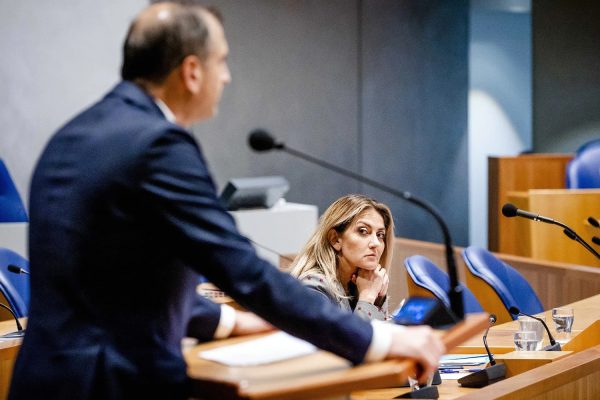
A consortium of Dutch investigate journalists discovered that the country spent €900 million to fight organized drug crime in the last five years without making a single arrest.
I write for Normaal Over Drugs, a campaign to normalize the drug debate, that the five-year failure is the umpteenth failure of repression, and the more reasonable policy is legalization.
Anti-drug team achieves nothing
The bulk of the €900 million was spent on an anti-drug brigade then-justice minister Ferd Grapperhaus created after the assassination of Derk Wiersum, the lawyer of a witness against the drug gangs, in 2019. The team grew into 400 customs and tax officials, detectives and prosecutors, but it was marred by infighting and indecision. Far from streamlining the war on drugs, Grapperhaus’ creation undermined investigations by stealing away the most qualified personnel from various departments.
The current justice minister, Dilan Yeşilgöz, has disbanded the team and is spending more money instead to interdict drug smugglers in the port of Rotterdam and to prevent teenagers from being recruited by drug gangs.
Minister points to neighbors
When asked if previous failures don’t caution against escalating the drug war, and if the better policy might not be legalization, Yeşilgöz argues there’s no point in decriminalizing or legalizing drugs in the Netherlands so long as the bulk of the drugs it imports are exported to the rest of Europe.
But that is an argument for decriminalization. The Netherlands can’t control the demand for drugs at home, much less abroad. Why should we suffer the crime and the violence when the drugs smuggled through Rotterdam aren’t even sold here?
Other countries are in fact moving away from repression. Germany’s three-party government, the first without the Christian Democrats in sixteen years, plans to decriminalize cannabis. Eighteen states in America already have. Portugal decriminalized all drugs and saw no increase in drug use. In Argentina, Bolivia, Brazil, Colombia and Greece, it’s no longer a crime, but an offense, to possess small quantities of cocaine. The new left-wing president of Colombia, Gustavo Petro, has proposed to legalize cocaine outright. His right-wing predecessor Juan Manuel Santos agrees. So does the former, and conservative, president of Mexico, Vicente Fox. Their countries suffer the consequences of Europe’s cocaine use.
The circular logic of repression
When pressed, Yeşilgöz (who is in the same political party as me) will argue legalization is wrong, because the drug crime is awful. And it is! In addition to Wiersum, cartels killed crime reporter Peter R. de Vries. In broad daylight, in the center of Amsterdam. They employ teens barely out of elementary school to sell and traffic drugs. They bribe and threaten customs officials, dock workers, journalists, judges, police officers, prosectors and private security guards.
But Yeşilgöz’ is a circular logic: drugs must be criminalized, because criminalization has led to… crime.
That’s not why we banned drugs. Drugs were banned when officials thought they were dangerous. Some are, but we have learned that the most commonly used drugs are hardly more dangerous than alcohol and tobacco.
Spending on drug war is disproportionate
One in ten drug users become addicted, the same share as for alcohol. Cannabis and MDMA, the most popular drugs in the Netherlands, are among the least addictive. Every year, smoking kills 20,000, drinking 1,900, drugs — about 200. Cannabis hasn’t killed anyone.
The share of MDMA users in the Netherlands, 3.1 percent, is high by European standards, but consumption rates for other drugs hover around 1 percent and have for many years. Do we really need to spend between €1.8 and €2.7 billion every year to save this tiny slice of the population from addiction?
I don’t think it’s worth it, and it doesn’t even seem to be working.
(That €1.8 to €2.7 billion is an external estimate. The Dutch government doesn’t keep track of it.)
